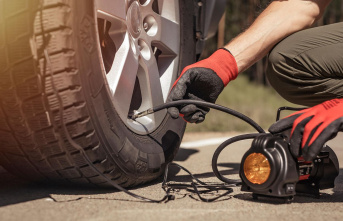Question: The next Aventador will be a plug-in hybrid with a twelve-cylinder engine. What is the electric range? Stephan Winkelmann: With the new Aventador, the electronic module, i.e. the battery and the electric motor, is designed to improve the longitudinal dynamics and not so much the range. Question: If it's about dynamics and not so much about range, then wouldn't supercapacitors be an alternative? Winkelmann: Super capacitors are currently not doing what a battery can. Neither the range nor the charging capacity. That's why we chose a battery that might offer less range than other hybrid vehicles, but that quickly provides the power we need. As soon as you drive the car you will feel it. Question: Why don't you hybridize an eight-cylinder like some other manufacturers do? Winkelmann: Because the twelve-cylinder is part of the Lamborghini DNA. We have also managed to build a twelve-cylinder that meets all modern requirements. That's why we're sticking with it. The reaction of our customers shows that this was exactly the right decision. We already have so many orders that we don't even know how to produce and distribute the cars. Question: How long will the twelve-cylinder be used? Winkelmann: As long as possible. (laughs). No seriously. When it comes to electrification, we are taking two paths. On the one hand, we want to launch the first all-electric vehicle in 2028. The second electric Lamborghini will then be the successor to the Urus. With the Aventador and the Huracan successor, we want to stick with the plug-in hybrids for as long as possible. Of course, we are considering producing hybrids after 2030 if synthetic gasoline allows us to do so. The important thing is that we don't have to make this decision today and we don't have to make it tomorrow either. So we still have a few years to decide whether we will go fully electric with the two super sports cars. Question: Do you research e-fuels yourself or do you rely on Porsche? Winkelmann: We are in close contact with Porsche. It was a corporate decision that Porsche should take on the pioneering role in synthetic gasoline. The next few years will show whether this is technically and legally feasible. Question: Do you see an alternative to synthetic fuels? Winkelmann: If emissions are to be reduced, then no. Otherwise you will not be able to hold on to the combustion engine. Question: You have already revealed that the first all-electric Lamborghini will be a crossover GT. Why this compromise solution and not a "real" GT? Winkelmann: I don't think that's a compromise, but a great challenge. In this way, our chief designer Mitja Borkert can design something completely new - both in terms of the segment and the design language. Mitja Borkert: What we are doing is a spaceship. Extreme design is associated with Lamborghini and we came up with a wonderful idea that is absolutely clear. This will be a trendsetter. Winkekmann: This vehicle concept represents the best of two worlds. The battery technology that we will be using will enable us to create a design language that will be typical of Lamborghini, but is completely new. On the one hand, you have a GT vehicle that is one of the most beautiful things there is, and on the other hand, the raised seating area conveys a feeling of security. That's why SUVs are so well represented in all segments and there's no tendency for them to decrease, Question: Isn't there a risk of cannibalization between the crossover GT and the Urus successor? Winkelmann: The more models you have, the greater the risk of cannibalization. We have analyzed this and see hardly any overlapping issues because the two cars will look completely different and will meet different requirements. Question: What platform will the Urus successor be on? Winkelmann: The Urus successor will share the platform with the GT. Question: You say that even a fully electric Lamborghini is defined by agility. How do you intend to implement this with the fully electric models with a heavy battery? Winkelmann: That is a valid question that we deal with on a daily basis. We have to prove by 2028 that Lamborghini can produce an electric vehicle that lives up to its name and sets standards not only in terms of longitudinal but also lateral acceleration. If we can do that with a super sports car like the Aventador, it will be easier for us with the crossover GT as well.
Interview: Stephan Winkelmann CEO Lamborghini: The best of both worlds
Question: The next Aventador will be a plug-in hybrid with a twelve-cylinder engine.

1
Air out: A comparison of tire repair kits: The best...
2
Vegetarianism: Are vegetarian foods automatically...
3
Telemedicine: Barmer Krankenkasse criticizes restrictions...
4
Actor: Dieter Hallervorden: "I'm a born...
5
After a serious accident: Tobias Moretti's wife...
6
Indoor garden: fresh herbs, fruit and vegetables all...
7
Addition to the family: Initial equipment for cats:...
8
Space travel: Manned ISS test with "Starliner"...
9
Diseases: West Nile Virus: First infection in 2022...
10
Iraq: Supporters of Shiite leader al-Sadr break into...
BREAKING NEWS






